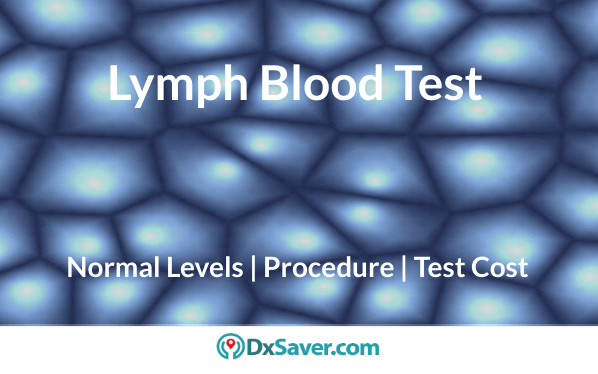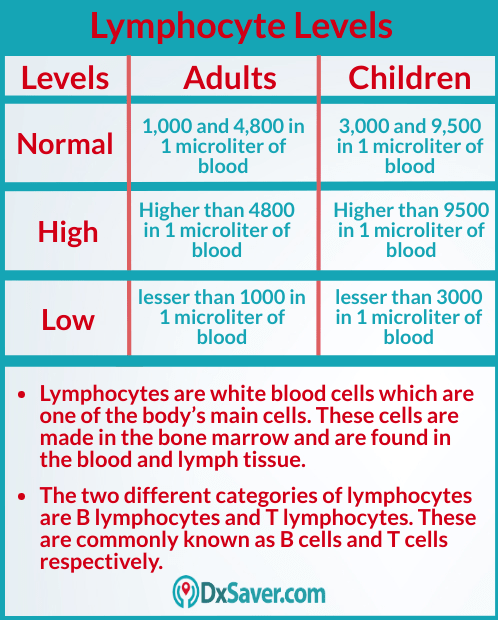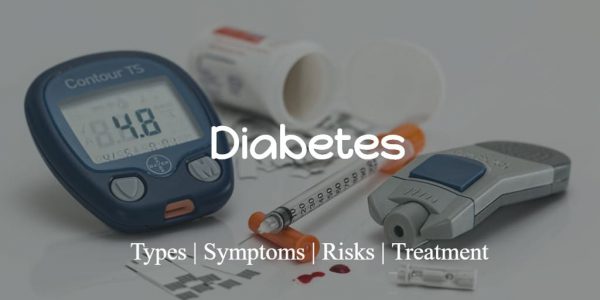
Lymphocytes are white blood cells which are one of the body’s main cells. These cells are made in the bone marrow and are found in the blood and lymph tissue. The immune system is a channel of cells known as immune cells which also include lymphocytes. These cells work together to protect your body from foreign substances, such as bacteria, cancer cells, and viruses that can threaten the functioning of your body.
In the article below we will cover all significant and relevant topics of Lymphocytes including its test cost in the United States, how it is performed, it’s type, risk factors, Normal, high and low range of Lymphocytes.
- Lymph blood test cost
- Types of Lymphocytes
- Why is the lymph blood test needed?
- How is Lymph blood test count performed?
- Is there any preparation required before the test?
- Are there any risks in the test?
- What does the test result mean?
- Normal lymphocytes count
- Higher lymphocytes count
- Lower lymphocytes count
- Provider’s Locations
For our readers, who are more interested in knowing the lymph blood test cost forehand, we begin with that section.
Lymph blood test cost
Lymph blood tests cost around $188 in different labs and facilities across the United States. There’s no advance booking is required to get tested. You can compare the price, order your test online and visit the nearest lab during lab business hours to get tested. After the completion of the procedure, results will be mailed to you in 2 to 3 business days. We also provide doctor consultation for treatment if required or for any kind of medical advice.
The following table shows the lymphocyte subset panel blood test cost at one of our partner laboratories (CLIA – Certified) network located across the United States.
Name of our Partner Labs | Book Online |
HealthLabs
| Offer Price$188 |
Lymph blood test cost with insurance
Many health insurance policies in the United States cover the cost of lymph blood tests. However, the coverage of private health insurance companies and national health insurance programs like Medicare and Medicaid varies widely. So we recommend you to check health insurance plans before getting tested for the lymph blood test.
Our lymph blood test providers do not accept any health insurance. On request, they can provide you with a receipt containing all the details like the name and code of the test, and CPT code which is necessary for insurance reimbursement purposes.
What are Lymphocytes and their types?
There are two different categories of lymphocytes and they are B lymphocytes and T lymphocytes. These are commonly known as B cells and T cells respectively. Both these cells originate from the stem cells in the bone marrow. From there, few cells move to the thymus, where they become T cells. Rests of the cells remain in the bone marrow where they become B cells.
Functions of lymphocytes
The job of B cells is to make antibodies, which produces protein by the immune system to fight abnormal substances like antigens. Each B cell helps in making one specific antibody and when each antibody matches an antigen just like a key matches a lock when this happens, the antigen is ready for destruction.
Similarly, the job of T cells is to help kill the cancer cells and control the immune response from abnormal substances. They do this by destroying cells in the body that have been taken over by viruses or even by cancerous cells.
The third type of lymphocyte is known as a natural killer or NK cell that comes from the same area as B and T cells. NK cells respond quickly to several abnormal substances and are specialized in killing cancerous cells or virus-infected cells.
Why is the lymph blood test needed?
If you start showing any symptoms of an infection or suspected blood disorder then your overall lymphocyte count tends to be abnormal. You might experience symptoms of the underlying conditions. For example:
- Fever
- Cough
- Runny nose
- Enlarged lymph nodes
- Small tonsils
- Lymph nodes
- Painful joints
- Skin rash
- Night sweats
- Weight loss
In such cases, your physician may order a blood test called a B and T cell screen to count how many lymphocytes are present in your bloodstream. Lymphocyte counts should be normal. If they are too high or too low then it can be a sign of illness.
B cells include:
- Memory B cell
- Regulatory B cell
T cells include:
- Killer T cells
- Helper T cells
- Regulatory T cells or Tregs
- Memory T cell
- Natural killer T cell
How is the Lymph blood test performed?
A lymph blood test is a simple blood test performed by your lab professional in a lab. Your lab professional will draw blood from your veins, particularly from the inside of your elbow. The steps involved in this test may include:
- Your lab professional will clean the puncture using an antiseptic
- They will wrap an elastic band around the upper arm by which your vein swell with blood, which helps the lab professional identify which vein to draw blood from
- Lab professionals will then gently insert a needle into the vein and collect the blood sample in a tube.
- Then he/she will remove the needle and elastic band from the upper arm.
- Then your blood sample will be sent to a laboratory for sample analysis.
Depending on the lab, wait times vary, but it takes no more than 2 to 3 days.
Is there any preparation required before the test?
There’s no serious preparation required before lymph blood tests like fasting. But before you take a lymph blood test; be sure to tell your physician about all the medications you’re taking. This may include any over-the-counter and prescription medications or even herbal supplements. Also, tell your Physician if you had/ have:
- Any recent infection
- Chemotherapy
- Radiation therapy
- Steroid therapy
- HIV
- Any surgery
- Pregnant
High stress
Are there any risks in the lymph blood test?
There is no serious risk involved in lymph blood tests. For any blood test, there’s a risk of bleeding, bruising, and infection at the puncture site. You might feel a moderate pricking sensation when the needle enters the arm.
What does the test result mean?
The B cell and T cell screen will give an estimate of the amount of T cells and B cells in your blood. Results will show a normal cell count or an abnormal cell count, the latter pointing to the presence of a disease in your body. The doctor may also ask for other tests to confirm a diagnosis.
When T cell counts are at a higher range, then it may indicate any of the following conditions:
- Sexually transmitted disease like syphilis
- Viral infection like infectious mononucleosis
- Toxoplasmosis, an infection caused by a parasite
- Tuberculosis, a disease that affects the lungs or maybe the other organs
- Cancer of the WBC
- Cancer in the blood, growing in bone marrow
High B cell range can indicate:
- Chronic lymphocytic leukemia
- Multiple myeloma
- A genetic disease, DiGeorge syndrome
- One type of cancer called Waldenstrom macroglobulinemia
Low T cell range can indicate:
- A disease from birth
- An acquired T cell deficiency disease includes HIV, which may progress to AIDS or HTLV-1
- A type of cancer
Low B cell range indicate:
- Acute lymphoblastic leukemia
- HIV or any other disease which weakens the immune system

Lymphocytes range
Lymphocyte level generally changes based on a person’s location, race, region, and lifestyle habits. Abnormal high or low lymphocyte counts can be a sign of disease.
The normal lymphocyte range:
- In adults, the normal lymphocyte ranges between 1,000 and 4,800 in 1 microliter of blood.
- In children, the normal lymphocyte ranges between 3,000 and 9,500 lymphocytes in 1 microliter of blood.
Elevated lymphocytes count
- In adults, lymphocytosis corresponds to a lymphocyte count that is elevated than 3,000 lymphocytes in 1 of blood.
- In children, the value can change with age. The lymphocyte’s high count would be around 9,000 lymphocytes in 1 of blood.
Elevated lymphocyte count is otherwise called Lymphocytosis, is very common if you’ve had any infection. High lymphocyte levels that persist will lead to a serious illness or disease, such as:
- Viral infections, such as measles, mumps, and mononucleosis
- Adenovirus
- Hepatitis
- Influenza
- Tuberculosis
- Toxoplasmosis
How to treat high lymphocyte levels?
Get plenty of rest, follow a good and healthy diet plan, and try to avoid germs because your body recovers its lymphocyte count. Eat nutrient-rich food every day to feel better and energized. Your physician and nutritionist will help you choose whole foods that are right for your body and are packed with protein and healing minerals and also vitamins.
Low lymphocytes count
Low Lymphocyte counts that signal lymphocytopenia vary for adults and children.
- The low count is usually less than 1,000 lymphocytes in 1 µL of blood for adults.
- The low count is less than 3,000 lymphocytes in 1 µL of blood for children.
Lymphocyte counts below the normal range are a temporary cause. They can occur after you catch a cold or any other infection, or be caused by intense physical exercise, stress, or malnutrition.
Low-level lymphocytes can also be a sign of a condition known as lymphocytopenia or otherwise called lymphopenia. Lymphocytopenia can be inherited, and it may also be acquired with certain diseases, such as:
- Rare inherited diseases, ataxia-telangiectasia
- Nerve diseases, multiple sclerosis
- Autoimmune diseases
- AIDS, or other sexually transmitted diseases
Lymphocytopenia can also be caused due to the side effect of medications or by some medical treatments.
How to treat low lymphocytes count?
- Antiretroviral combination therapy
- Other antiviral agents, antifungals, antibiotics, or antiparasitic drugs to treat other infections
- Gamma globulin helps prevent infections that can occur due to B-cell
- Bone marrow stem cell transplant
Providers Locations:
A lymph blood test can be done in any of the following locations across the U.S. by visiting the nearest lab.
- Alabama
- Alaska
- Arizona
- Arkansas
- California
- Colorado
- Connecticut
- Delaware
- Florida
- Hawaii
- Georgia
- Idaho
- Illinois
- Indiana
- Iowa
- Kansas
- Kentucky
- Louisiana
- Maine
- Michigan
- Minnesota
- Mississippi
- Missouri
- Montana
- Nebraska
- Nevada
- New Hampshire
- New Mexico
- North Carolina
- North Dakota
- Oklahoma
- Oregon
- Pennsylvania
- Puerto Rico
- South Carolina
- South Dakota
- Tennessee
- Texas
- Utah
- Vermont
- Virginia
- Washington
- West Virginia
- Wisconsin
- Wyoming
Frequently Asked Questions
Will insurance cover my testing cost?
No, insurance will not be covered in the billing. However, they will provide you a receipt for insurance reimbursement purposes.
How should I book my appointment?
You can choose the most suitable provider from above and make an appointment by following the instructions mentioned by them.
Can I cancel my lab test order?
Yes, you can cancel your lab test order anytime before your testing. A refund will be initiated after deducting the cancellation fee. However, cancellation is at the discretion of the provider.
Do the providers offer result interpretations?
Yes, a few providers may provide doctor consultation who will take you through the results and provide clarification if needed.
How do I receive my report?
To ensure your privacy, the test report will be mailed to you by the provider.
Other topics you may be interested in:-
- Signs and Symptoms of Oral Syphilis
- Top 20 food to keep diabetes in check
- GGT, Gamma-GT Blood Test Cost in the US
- What are the types of skin cancer?
- Is Itching a Symptom of STD?
- Blood tests to check for pregnancy hormones
- Top 10 best food for weight loss
- How much does an MRI scan cost in the US?
- Cost of CT scan in the US
- ANA Test Cost in the US
- Anti-aging Testing Cost in the US
- What Types of STDs cause Dry Skin?
- How Much Does At-Home Drug Test Kit Cost in the US?
- C-Peptide Normal Levels, Test Results & Treatment
- Importance of CA 125 Testing & Ovarian Cancer in Women
- Oral STDs: Names, Symptoms, Treatment and Testing Cost
- Herpes Vs. HPV: Differences, Symptoms, and Testing Cost
- Colon Cancer Stages | Know more about Early Symptoms, Causes & Treatment
- Symptoms of Pancreatic Cancer | More about Causes, Diagnosis & Treatment






